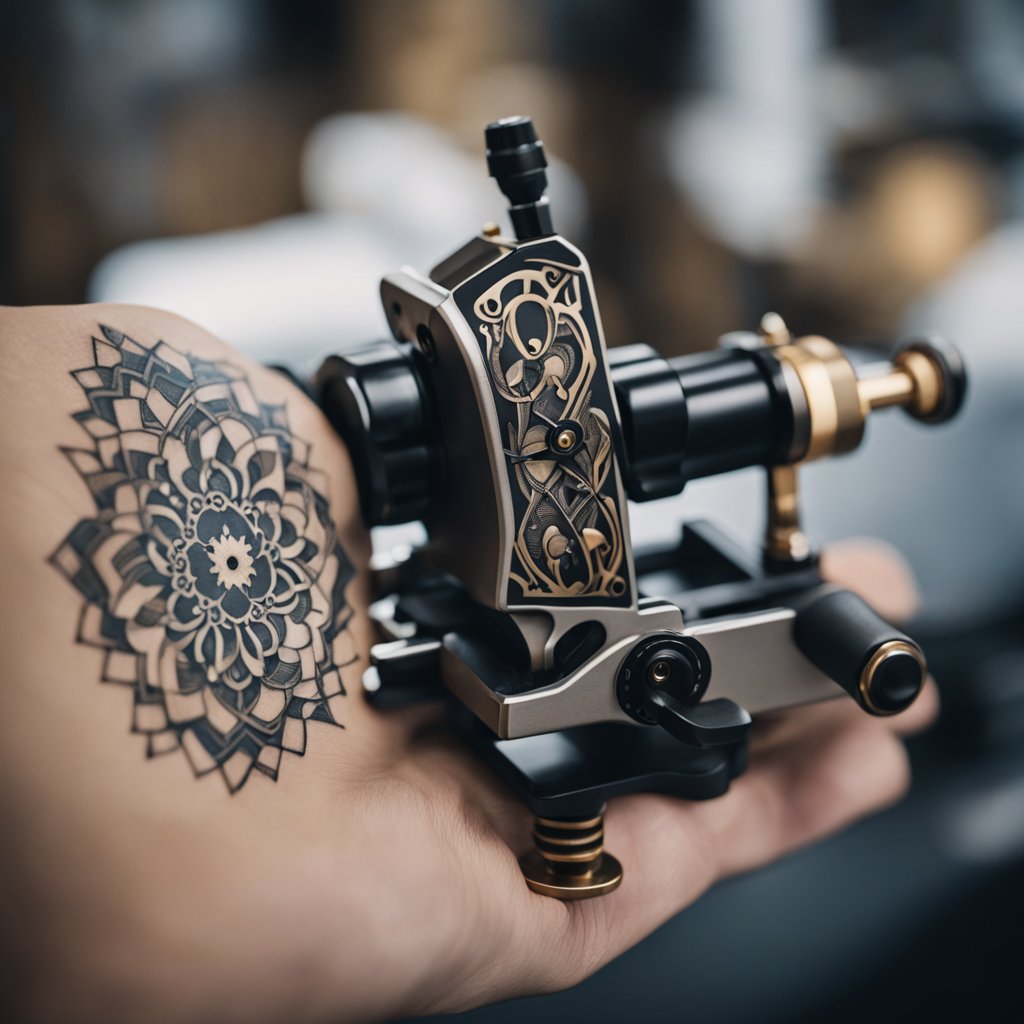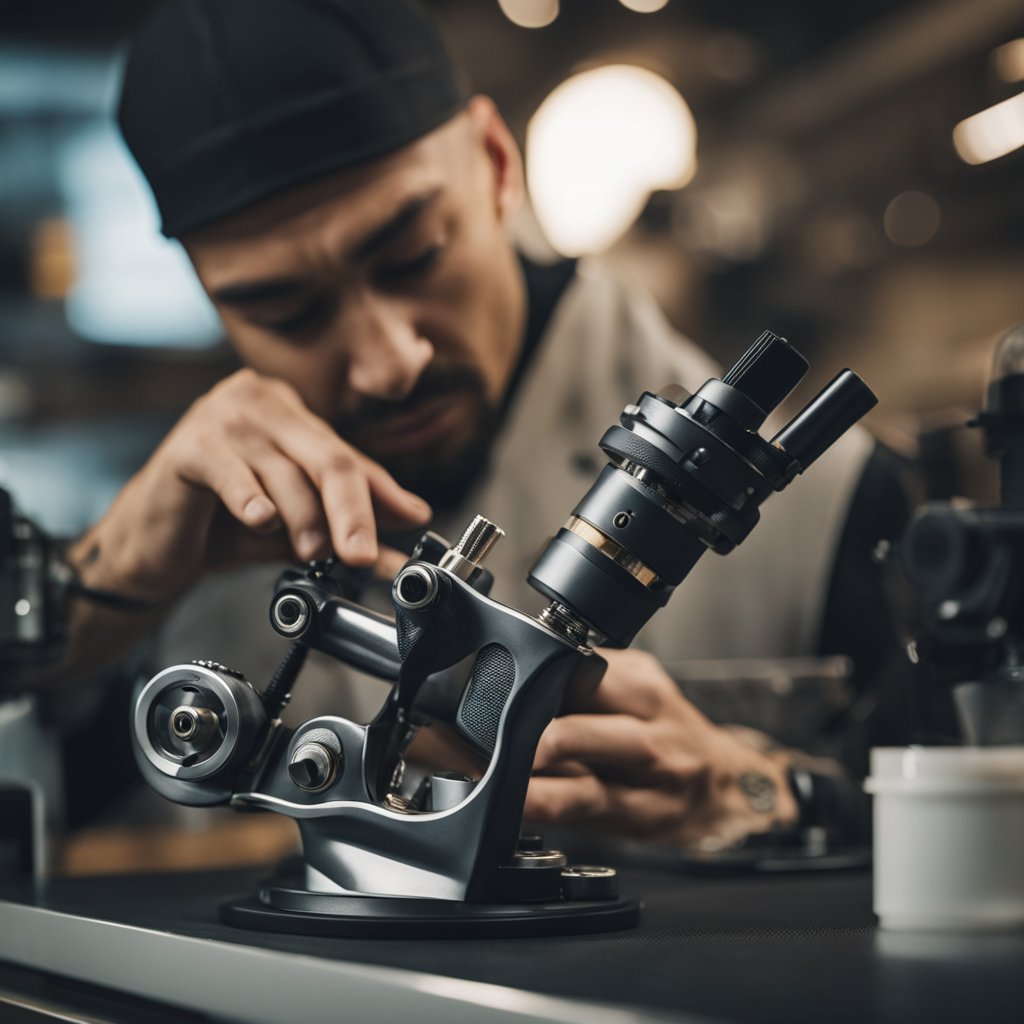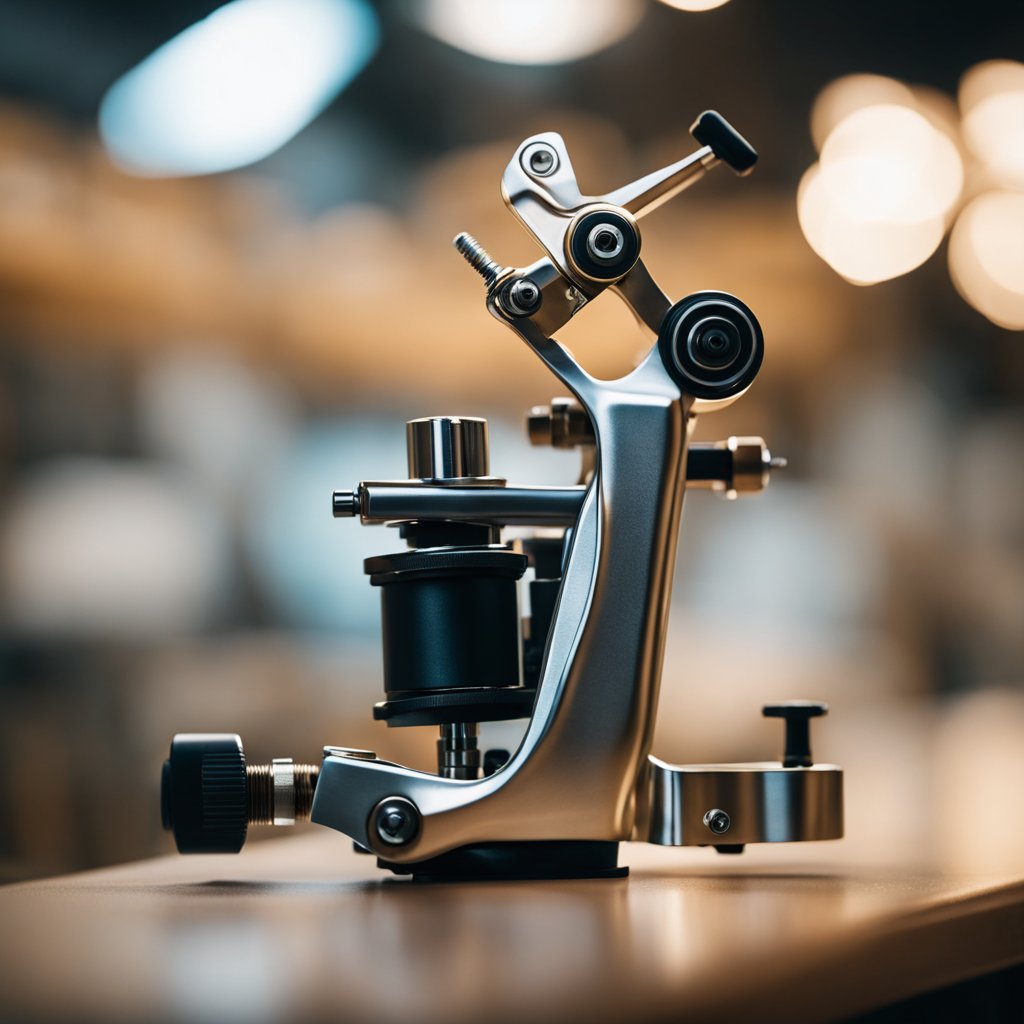Rotative Machine Tattoo: The Pros and Cons of Using This Type of Tattoo Machine
Rotative Machine Tattoo: The Pros and Cons of Using This Type of Tattoo Machine
Rotary tattoo machines, also known as rotative machines, are becoming increasingly popular among tattoo artists. These machines use a motor to rotate the needle, which makes them quieter and smoother than traditional coil machines. Additionally, rotary machines can be customized to fit the artist's personal preferences, making them a versatile tool for creating unique designs.
Understanding rotative machine tattoo is important for anyone interested in getting a tattoo or becoming a tattoo artist. Unlike traditional coil machines, rotary machines use a motor to drive the needle, which reduces the noise and vibration associated with tattooing. Additionally, rotary machines can be customized with different grips, needles, and tubes to create a personalized tattooing experience.
Key Features and Customization are two important aspects of rotative machine tattoo. These machines can be customized with different grips, needles, and tubes to create a personalized tattooing experience. Additionally, rotary machines offer a wide range of features, such as adjustable needles and variable speed settings, that allow artists to create intricate designs with precision and accuracy. Overall, rotative machine tattoo offers a unique and versatile tool for creating beautiful and personalized tattoos.
Key Takeaways
- Rotary tattoo machines use a motor to rotate the needle, which makes them quieter and smoother than traditional coil machines.
- Rotary machines can be customized with different grips, needles, and tubes to create a personalized tattooing experience.
- Key features of rotative machine tattoo include adjustable needles and variable speed settings, which allow artists to create intricate designs with precision and accuracy.
Understanding Rotative Machine Tattoo
Rotary tattoo machines have become increasingly popular in recent years, and for good reasons. They are versatile, efficient, and precise. In this section, we will discuss the mechanics of rotary machines and compare them to coil tattoo machines.
Mechanics of Rotary Machines
Rotary tattoo machines use an electric motor to drive the needle up and down. The motor is typically a brushless DC motor, such as a Faulhaber motor, which provides a consistent and reliable power source. The motor is connected to the needle through a direct drive system, which means that there are no additional components, such as springs or armatures, to create friction or resistance. This results in a smoother and quieter operation, as well as less wear and tear on the machine.
Rotary machines are also available with different types of grips, including disposable and autoclavable options. The grip is the part of the machine that the tattoo artist holds, and it can be made of various materials, such as aluminum, steel, or silicone. Some rotary machines even have adjustable grips that allow the artist to change the needle depth and stroke length, which can be useful for different tattooing techniques and styles.
Comparing Rotary and Coil Tattoo Machines
Rotary tattoo machines have several advantages over coil tattoo machines. For one, they are easier to set up and maintain. Coil machines have several components that need adjusting before doing a tattoo, such as the springs, armature bar, and contact screw. Rotary machines, on the other hand, have fewer parts and require less maintenance. They also have a smoother and quieter operation, which can be beneficial for both the artist and the client.
Another advantage of rotary machines is that they can be used for both lining and shading. Coil machines, on the other hand, are typically better suited for lining, as they have a faster and more aggressive needle movement. Rotary machines have a slower and more controlled needle movement, which makes them better for shading and coloring.
In conclusion, rotary tattoo machines are a great option for tattoo artists who value versatility, efficiency, and precision. They are easy to set up and maintain, and they can be used for both lining and shading. Whether you are a beginner or a professional, a rotary machine can help you achieve your tattooing goals.
Key Features and Customization
Rotary tattoo machines are highly customizable and offer a range of features that allow artists to adjust the machine according to their personal preference. This section will cover some of the key features and customization options that artists can use to create precise and consistent tattoos.
Adjustable Settings for Precision
One of the most important features of a rotary tattoo machine is the ability to adjust the stroke length and needle depth. This allows artists to achieve greater precision and create tattoos that are more consistent. The stroke length determines how far the needle travels, while the needle depth determines how deep the needle goes into the skin. By adjusting these settings, artists can create tattoos that are tailored to the client's skin type and personal preference.
Ergonomic Design and Material Quality
Another important aspect of rotary tattoo machines is the ergonomic design and material quality. Many machines are made from aircraft-grade aluminum alloy, which is lightweight and durable. The design of the machine should be ergonomic, allowing the artist to work for extended periods without experiencing fatigue or discomfort. The machine should also be easy to disassemble and clean, ensuring that it remains in good condition and is hygienic.
In conclusion, rotary tattoo machines offer a range of features that allow artists to create precise and consistent tattoos. By adjusting the stroke length and needle depth, artists can achieve greater precision and create tattoos that are tailored to the client's skin type and personal preference. The ergonomic design and material quality of the machine are also important factors to consider, ensuring that the machine is comfortable to use and easy to maintain.
Performance and Experience

When it comes to performance and experience, rotary tattoo machines offer a number of advantages over traditional coil machines. In particular, they are known for their quiet operation and low levels of vibration, which can help to reduce fatigue and make the tattooing experience more comfortable for both the artist and the client.
Noise and Vibration Levels
Rotary machines are generally quieter than coil machines, producing less noise and vibration during operation. This can be especially beneficial for artists who work in small or shared spaces, as well as for clients who may be sensitive to loud or jarring sounds. The reduced vibration can also help to improve accuracy and precision, allowing for more detailed and intricate designs.
Tattooing Techniques and Outcomes
In addition to their quiet operation, rotary machines are also known for their versatility and range of tattooing techniques. They can be used for shading, coloring, outlining, line work, and color packing, making them a popular choice among tattoo artists of all skill levels. Rotary machines also offer greater control and precision when it comes to needle depth and speed, which can help to ensure a more accurate and consistent outcome.
Overall, rotary tattoo machines offer a number of benefits when it comes to performance and experience. From their quiet operation and low levels of vibration to their versatility and precision, they are a popular choice among tattoo artists and clients alike.
Maintenance and Aftercare

Rotary tattoo machines are reliable and low maintenance, but they still require proper care and cleaning to ensure longevity and optimal performance. In this section, we will discuss the essential maintenance and aftercare steps to keep your rotary tattoo machine running smoothly.
Cleaning and Sanitization
Cleaning and sanitizing your rotary tattoo machine after each use is crucial to prevent cross-contamination and the spread of infectious diseases. The machine should be disassembled, and all parts should be thoroughly cleaned with a disinfectant solution. It is recommended to use an autoclave-safe solution to ensure complete sterilization.
Regular cleaning and lubrication of the machine's moving parts are essential to prevent rust and ensure smooth operation. It is recommended to use a high-quality lubricant to keep the machine running smoothly.
Machine Durability and Warranty
Rotary tattoo machines are durable and built to last, but proper maintenance is still essential to ensure longevity. Most rotary tattoo machines come with a 1-year warranty, which covers any defects or malfunctions that occur during normal use. However, it is important to read the warranty terms carefully and follow the manufacturer's maintenance guidelines to avoid voiding the warranty.
Regular maintenance and proper aftercare can help extend the life of your rotary tattoo machine and prevent costly repairs. By following the manufacturer's guidelines and taking proper care of your machine, you can ensure that it continues to perform at its best for years to come.
Frequently Asked Questions

What does a rotary tattoo machine do?
A rotary tattoo machine is a type of tattoo gun that uses an electric motor to move the needle up and down. The needle is attached to a rotating shaft, which helps to create a consistent and precise tattoo. Rotary tattoo machines are commonly used by professional tattoo artists because they are lightweight, easy to control, and can be used for a variety of tattoo styles.
Is a rotary tattoo machine better?
Whether a rotary tattoo machine is better than a coil tattoo machine is subjective and depends on the artist's preference. Some artists prefer the consistency and precision of a rotary machine, while others prefer the power and versatility of a coil machine. Ultimately, the choice between a rotary and coil machine comes down to personal preference and the type of tattoo being created.
Does rotary or coil hurt more?
The pain level of getting a tattoo with a rotary or coil machine is subjective and varies from person to person. Some people may find that a rotary machine is less painful because it creates less trauma to the skin, while others may find that a coil machine is less painful because it can penetrate the skin more deeply and quickly. The pain level of getting a tattoo also depends on the location of the tattoo and the individual's pain tolerance.
What is the best tattoo rotary machine?
There is no one "best" tattoo rotary machine as it depends on the artist's preference and the type of tattoo being created. Some popular brands of rotary tattoo machines include Cheyenne, Bishop, and Inkjecta.
Is there a significant difference in pain between rotary and coil tattoo machines?
The difference in pain between rotary and coil tattoo machines is subjective and varies from person to person. Some people may find that a rotary machine is less painful because it creates less trauma to the skin, while others may find that a coil machine is less painful because it can penetrate the skin more deeply and quickly. Ultimately, the pain level of getting a tattoo also depends on the location of the tattoo and the individual's pain tolerance.
What are the price ranges for quality rotary tattoo machines?
The price of a quality rotary tattoo machine can range from around $200 to $1,000 or more. The price depends on the brand, features, and quality of the machine. It is important to invest in a high-quality rotary tattoo machine to ensure a consistent and precise tattoo.
